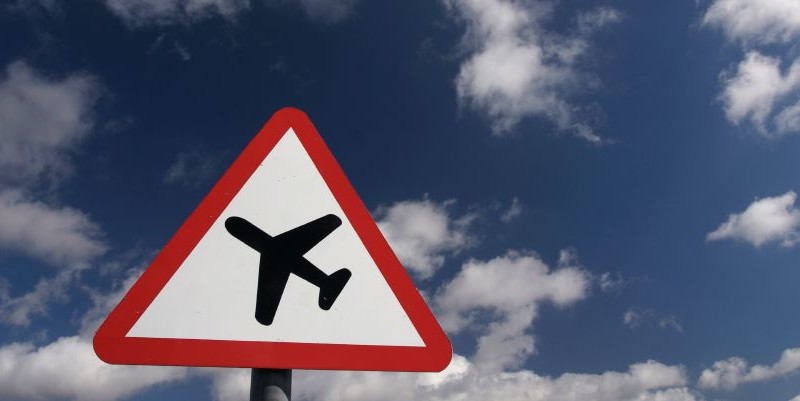This is an excerpt from a story in The New York Times:
“The cockpit voice captured ‘a brief fraction-of-a-second sound’ just before it stopped recording, the chief of the crash investigation said this afternoon.
The recording indicates that whatever happened, it was sudden, a finding that is consistent with a bomb…
Aviation experts say they cannot exclude mechanical failure, but they cannot come up with a scenario for a mechanical problem that would suddenly destroy a plane.”
That story was written in July 1996 and the accident was the crash of TWA Flight 800 off the cost of New York that killed all 230 people. Even before the story was published, tin kickers already suspected an explosion in the plane’s fuel tank brought the airplane down.
As 2015 draws to a close, little seems to have been learned from the rush to call TWA 800 a terrorist act. Once again, politicians, intelligence agents and journalists have made up their minds that a bomb triggered the crash of a Russian Airbus A321, though evidence to support this theory is ephemeral.
This is not to say a bomb wasn’t on the plane. Only that any sensible person expects such a finding to be based on facts, not anonymous whisperers and talking heads.
On the ground in the Sinai Peninsula and in labs in Cairo, investigators from five countries are looking for clues to explain what triggered the plane to come apart as it passed through 30,000 feet on a flight from Sharm el Sheikh to St. Petersburg.
And in a lab in Cairo, the voice and flight data recorders are being analyzed. But don’t believe CNN’s Richard Quest or the others on television who say some sophisticated analysis of the last sound recorded can prove what triggered the destruction of the airliner because it can’t.
“When you have a plane blow up at altitude, an explosion regardless of the source, a bomb or a fuel tank or structural failure with explosive decompression, the noise you hear is noise. There is no structure to the sound and the bandwidth isn’t there to provide that kind of data,” said Mike Poole, a flight recorders expert and CEO of Plane Sciences.
Poole was one of several people from Canada who conducted a study in the late nineties to determine whether different explosions had different sound signatures. Shortly after that he headed to Cairo to help the Egyptians install a state-of-the-art recorder lab. Poole is confident the Accident Investigation Committee has the tools and the team has the expertise to obtain whatever information is available on the black boxes, but a telltale sound that provides a Eureka moment won’t be there.
“CVR recordings are generally unable to discriminate between explosions and structural failure decompressions,” Stuart Dyne, at the Institute of Sound and Vibration Research University of Southampton, UK wrote in a paper for the International Society of Air Safety Investigators.
That the CVR holds the key is one piece of wobbly information making the rounds as we enter the second week in the latest aviation mystery. Another is that Egypt is not up to the job of conducting the probe.
In a story with an eyebrow-raising headline that suggests Egypt is purposefully denying the obvious; “Resisting Bomb Theory, Egypt Finds Itself Increasingly Alone” The New York Times takes the position that Egypt cannot be trusted.
“I don’t anticipate the Egyptian investigation here to be any more transparent than their work on Egyptair 990,” Former NTSB chief Jim Hall told the Times.
During Hall’s time on the board, the Egyptian government refused to accept the NTSB’s conclusion that the 1999 crash of flight 990 was a case of pilot suicide.
Everyone seems to have joined in chorus that Metrojet 7K9268 was felled by a bomb except the official investigators. But really if the tables were turned, would the NTSB behave differently? Not if past experience is any indicator.
In 1996, this journalist remembers NTSB vice chairman Robert Francis telling reporters day after day, month after month, that three theories in the in-flight explosion of TWA 800 were being given equal weight, a bomb, a missile and a mechanical malfunction. That’s what he said to the TV cameras. Behind the scenes and within days of the crash, investigators were saying it was all but certain, there was no crime involved; the fuel tank had blown apart.
During his brief news conference this past Sunday, Ayman el-Mokkadem, the head of Egypt’s investigation team made a plea to all those folks who think he can’t do his job right.
“The committee urges the sources of such reports to provide it with all information that could help us to undertaking our mission,” he said.
It’s not a toss-away line, nor should it be considered evidence of obstruction or resistance. I’m no Polly-anna, but it sounds like a genuine plea that all those know-it-alls either put up or shut up. It’s doubtful that those to whom the investigation chief was speaking – the high level sources with their conflicting agendas – will heed his request either. They’re too busy getting their rush-to-judgment messages out through their own, highly opaque channels.
Related articles:











